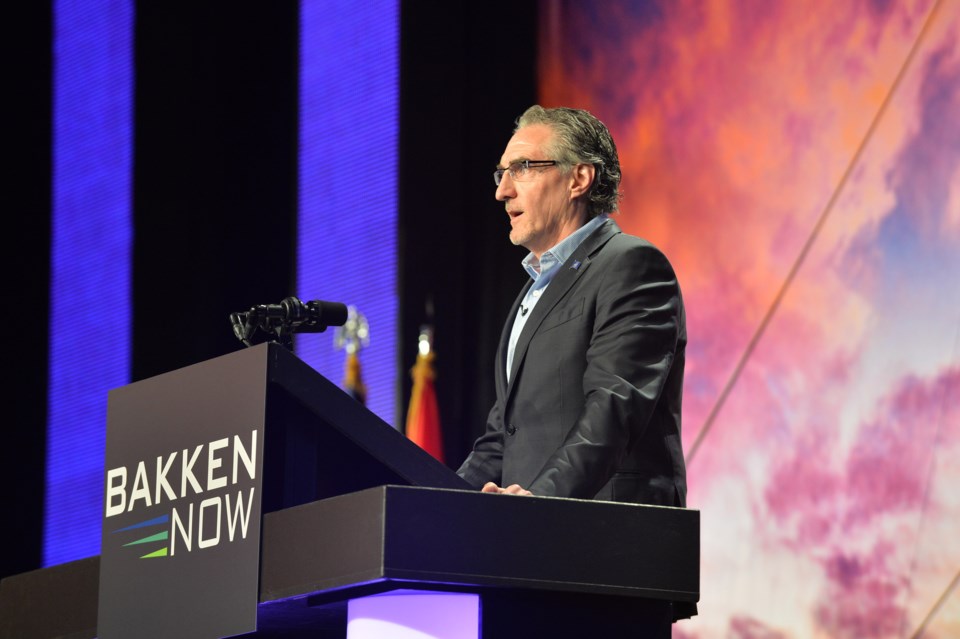Bismarck, N.D. – North Dakota’s oil production around a decade ago didn’t even top 100,000 bpd. Now the state, which is again producing 1.2 million barrels a day, has its sights set a lot higher.
North Dakota Governor Doug Burgum said the state government’s focus can be summed up in six words: empower people, improve lives, inspire success.
“When I think about this industry, I think that that’s exactly what you’re doing, empowering people, improving lives, and inspiring success.
He noted in the face of difficulty, the industry “applied an enormous amount of curiosity, and that curiosity led to innovation after innovation after innovation. And you had the courage to step up, invest your own capital, private capital, investing in innovation, at a time when others in the world thought they could put this basin out of business through dropping the price. What happened here? This group lowered its break-even. This group innovated.
He thanked the industry for doing what they have done.
“Yes, we’re on track to break our record that we set a few years ago for oil production per day, as Ron (Ness) mentioned. I believe, as I did a year ago, with the innovation and the leadership of this group, that we will see the day when North Dakota is producing two million barrels a day,” Burgum said.
“One of the ways we’re going to get there is through enhanced oil recovery, including the potential to use carbon dioxide that is captured from our very productive lignite coal plants and using that to squeeze even more product out of the shale. This technology is the opportunity to potentially to add even billions of more oil to our state. We’re getting closer to advancing this innovation.
“I’ll make another prediction today: we’re going to become so effective at using carbon for enhanced oil recovery that we’re actually going to be at a spot where we don’t have enough carbon in our state and there’ll be a day when people are importing carbon into the Bakken,” Burgum added.
He noted this only happens due to the important role of research through private-public partnerships.
No more spills
Burgum also repeated a challenge he had laid out earlier to completely eliminate all pipeline spills.
“I know some people say this is not a possibility. I challenge the industry. The United States is a curious place. Culturally, we’re a country that endures over 110 automobile deaths a day, over 40,000 a year. You’ll never see that headline today in the Washington Post or New York Times, because culturally we accept that. But on airlines, culturally, we accept zero. This nation went nine years without a commercial airline death. Tragically, last month an engine blew up and killed one passenger who happened to have the fate of sitting next to the wrong window, and (there were) headlines all over the place.
“This industry is under the same kind of microscope the airline industry is, and there’s an expectation of zero tolerance. But with technology, we can get there.”
“It’s not good enough, in our state, that we have our farmers and ranchers on the front line of spill detection. We can do better.”
He noted a new research project to detect leaks.
“We’re about innovation, not regulation. Regulation, by its nature, is backward-looking, and focuses on yesterday’s problems with yesterday’s technology,” he said. “We need to partner with industry to come up with new solutions, when we’re faced with a problem, and find solutions that haven’t existed before.”



